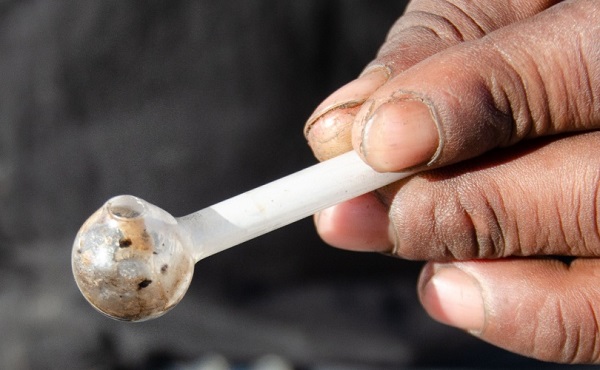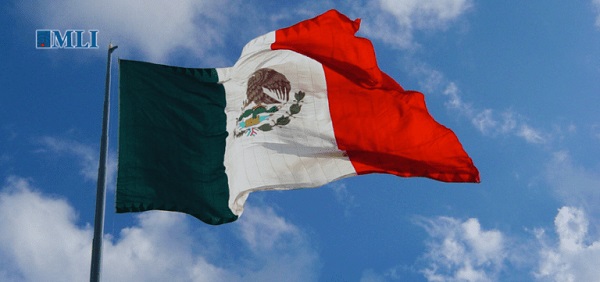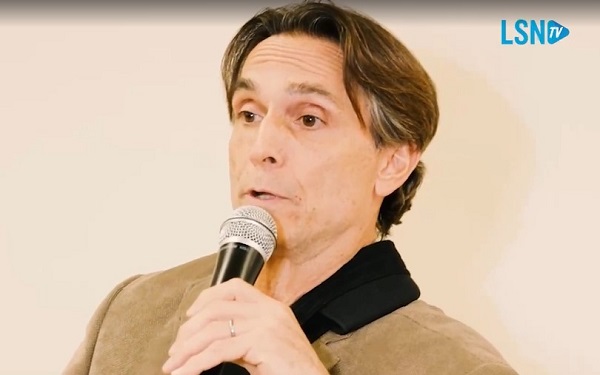Crime
Woman in stolen truck collides with police cruiser

Red Deer RCMP arrest woman in stolen vehicle after collision with police car
Red Deer, Alberta – Red Deer RCMP arrested a woman late Thursday night after the stolen truck she was driving collided with a police vehicle during her efforts to flee.
At 11:45 pm on September 27, Red Deer RCMP responded to a report of a suspicious vehicle in an alley in Riverside Meadows. RCMP determined the truck had been stolen and boxed it in. The truck reversed into one of the police cars and attempted unsuccessfully to push it out of the way; the female driver was taken into custody without further incident. The police officer occupying the police vehicle at the time of the collision was not injured. RCMP seized what is believed to be fentanyl during the arrest.
36 year old Starla Ann Martin was wanted on warrants at the time of her arrest for breaching probation and failing to comply with the conditions of a recognizance. She now faces the following additional charges:
- Criminal Code 355(a) – Possession of stolen property over $5,000
- Criminal Code 430(3) – Mischief over $5,000
- Criminal Code 145(3) – Fail to comply with conditions X 3
- Criminal Code 733.1(1) – Fail to comply with probation order
- Criminal Code 129(a) – Resist/ obstruct peace officer
- Criminal Code 249.1(1) – Operation of motor vehicle while being pursued by police
- CDSA 4(1) – Possession of Schedule I substance
- TSA 51(a) – Operate motor vehicle without a licence
- TSA 54(1)(a) – Drive uninsured vehicle
Martin is scheduled to appear in court in Red Deer on October 4 at 9:30 am.
Addictions
Parliament votes for proposal recommending hard drug decriminalization

From LifeSiteNews
Canadian MPs have voted 210 to 117 in favor of a proposal to decriminalize simple possession of heroin, cocaine and all other illegal drugs across Canada despite the disastrous effects of lax drug policies already observed.
Canada may be one step closer to decriminalizing hard drugs as the majority of MPs voted in favor of a proposal recommending the move.
According to information published November 25 by Blacklock’s Reporter, MPs voted 210 to 117 in favor of a proposal recommending the decriminalizing of the simple possession of heroin, cocaine and all other illegal drugs across Canada. While the proposal is non-binding, it could point to how MPs would vote on a future bill seeking to augment the law.
“Why has it come to this?” Conservative MP Jacques Gourde, who opposes such a move, questioned. “We have reached the end of the road and nothing better lies ahead if we continue down this path.”
The recommendation, which received a House majority with only Conservative MPs voting against it, suggested “that the Government of Canada decriminalize simple possess of all illicit drugs.”
Prime Minister Justin Trudeau’s cabinet was noncommittal in their response to the suggestion, saying, “The government recognizes there are increasing calls from a wide range of stakeholders to decriminalize the simple possession of drugs as another tool to reduce stigma that can lead many to hide their drug use and avoid seeking supports including treatment.”
“The government is exploring policy approaches and a broader framework that would ease the impact of criminal prohibitions in certain circumstances,” the Cabinet continued.
The Trudeau government’s consideration of nationwide decriminalization comes despite drug-related deaths skyrocketing in the province of British Columbia after decriminalization was implemented there by the Trudeau government in 2023. In fact, the policy was considered so damaging by the left-wing controlled province that it had to ask to have certain aspects of the policy, such as the public use of drugs, rescinded earlier this year.
Other soft-on-drug policies have already been implemented by the Trudeau government, including the much-maligned “safer supply” program.
“Safe supply” is the term used to refer to government-prescribed drugs given to addicts under the assumption that a more controlled batch of narcotics reduces the risk of overdose. Critics of the policy argue that giving addicts drugs only enables their behavior, puts the public at risk, disincentivizes recovery from addiction and has not reduced – and sometimes even increased – overdose deaths when implemented.
The effects of decriminalizing hard drugs have been the source of contention throughout the country, as evidenced in Aaron Gunn’s documentary, Canada is Dying, and in U.K. Telegraph journalist Steven Edginton’s mini-documentary, Canada’s Woke Nightmare: A Warning to the West.
Gunn, who has since become a Conservative Party candidate, previously noted that his film shows clearly the “general societal chaos and explosion of drug use in every major Canadian city” since lax policies were implemented.
“Overdose deaths are up 1,000 percent in the last 10 years,” he said in his film, adding that “every day in Vancouver four people are randomly attacked.”
Crime
Mexican cartels are a direct threat to Canada’s public safety, and the future of North American trade

From the Macdonald Laurier Institute
By Gary J. Hale for Inside Policy
RCMP raided a fentanyl ‘superlab’ in Falkland, BC, with ties to a transnational criminal network that spans from Mexico to China.
On October 31, residents of Falkland, BC, were readying their children for a night of Halloween fun. Little did they know that their “quaint, quiet, and low-key little village” was about to make national headlines for all the wrong reasons.
On that day, RCMP announced that it had raided a fentanyl “superlab” of scary proportions near Falkland – one that police called the “largest and most sophisticated” drug operation in Canada. Officers seized nearly half-a-billion-dollars’ worth of illicit materials, including 54 kilograms of finished fentanyl, 390 kilograms of methamphetamine, 35 kilograms of cocaine, 15 kilograms of MDMA, and six kilograms of cannabis” as well as AR-15-style guns, silencers, small explosive devices, body armour, and vast amounts of ammunition.
They also found massive quantities of “precursor chemicals” used to make the drugs. This strongly suggests that the superlab was tied into a transnational criminal network that spans from Mexico to China – one that uses North America’s transportation supply chains to spread its poisonous cargo across Canada and the United States.
The Canada-US-Mexico relationship is comprised of many interests, but the economic benefits of trade between the nations is one of the driving forces that keep these neighbours profitably engaged. The CUSMA trade agreement is the successor to NAFTA and is the strongest example globally of a successful economic co-operation treaty. It benefits all three signatories. This level of interdependence under CUSMA requires all parties to recognize their respective vulnerabilities and attempt to mitigate any threats, risks, or dangers to trade and to the overall relationship. What happens to one affects all the others.
The supply chain, and the transport infrastructure that supports it, affects the balance books of all three. While the supply chain is robust and currently experiences only occasional delays, the different types of transport that make up the supply chain – such as trucks, trains, and sea-going vessels – are extremely vulnerable to disruption or stoppages because of the unchecked violence and crime attributed to the activities of Mexican Transnational Criminal Organizations (TCOs). These cartels operate throughout Mexico, from the Pacific ports to the northern plains at the US-Mexico border.
The sophistication of the Falkland superlab strongly suggests connectivity to multi-national production, transportation, and distribution networks that likely include China (supply of raw products) and Mexico (clandestine laboratory expertise).
For most Canadians, Mexican cartels call to mind the stereotypical villains of TV and movie police dramas. But their power and influence is very real – as is the threat they pose to all three CUSMA nations.
Mexico’s cartels: a deadly and growing threat
Mexican cartels started as drug trafficking organizations (DTOs) in the 1960s. By the late 1990s they had evolved to become transnational enterprises as they expanded their business beyond locally produced drugs (originally marijuana and heroin) to include primarily Colombian cocaine that they transported through Mexico en route to the US and Canada.
Marijuana and the opium poppy are cultivated in Mexico and, in the case of weed, taken to market in raw form. While the cartels required some chemicals sourced from outside Mexico to extract opium from the poppy and convert it into heroin, the large-scale, multi-ton production of synthetic drugs like Methamphetamine and today Fentanyl expanded the demand for sources of precursor chemicals (where the chemical is slightly altered at the molecular level to become the drug) and essential chemicals (chemicals used to extract, process, or clean the drugs.)
The need to acquire cocaine and chemicals internationalized the cartels. Mexican TCO’s now operate on every continent. That presence involves all the critical stages of the criminal business cycle: production, transportation, distribution, and re-capitalization. Some of the money from drug proceeds flow south from Canada and the US back to Mexico to be retained as profits, while other funds are used to keep the enterprise well-funded and operational.
In Mexico, the scope of their activities is economy-wide; they now operate many lines of criminal business. Some directly affect Mexico’s economic security, such as petroleum theft, intellectual property theft (mainly pirated DVDs and CDs), adulterating drinking alcohol, and exploiting public utilities. Others are in “traditional” criminal markets, such as prostitution, extortion, kidnapping, weapons smuggling, migrant smuggling and human trafficking. Organized auto theft has also become another revenue stream.
Criminal Actors
The Cartel de Sinaloa (CDS or Sinaloa Cartel) and the Cartel Jalisco Nueva Generacion (CJNG) are the two principal TCO’s vying for territorial control of Mexico’s air, land, and maritime ports, as well as illegal crossing points. These points on the cartel map are known as “plazas,” and are often between formal ports of entry into the US. By controlling territories crucial for the inbound and outbound movement of drugs, precursors, people, and illegal proceeds, the cartels secretly transport illicit goods and people through commercial supply chains, thus subjecting the transportation segment of legitimate North American trade to the most risk.
That is giving the cartels the power to impair – and even control – the movement of Mexico’s legitimate trade. While largely kept out of the public domain, incidents of forced payment of criminal taxation fees, called “cuotas,” and other similar threats to international business operations are already occurring. For instance, cuotas are being imposed on the transnational business of exporting used cars from the US to Mexico. They’re also being forced on Mexican avocado and lime exporters before the cartels will allow their products to cross the border to the US and international markets. This has crippled that particular trade. Unfortunately, the Mexican government has been slow to react, and the extortion persists throughout Mexico. It is worth repeating – these entirely legitimate goods reach the market only after cartel conditions are met and bribes paid.
The free trade and soft border policies of the US of recent years have allowed cartel operatives to enter that country and work the drug trade with limited consequence. In May, the U.S. Drug Enforcement Administration (DEA) published the National Drug Threat Assessment 2024, where it reported that the Jalisco and Sinaloa cartels operate in all 50 US states and are engaged in armed violence in American cities as they fight for market shares of the sales of Methamphetamine, Fentanyl, and other drugs sourced from Mexico.
The DEA’s findings should sound alarms in Canada. Canada and the US have similar trade and immigration policies, which allow the Mexican cartels to easily enter and control the wholesale component of the drug trade. The long-term effects of the drug trade are the billions of dollars gained that allow for the corruption of government officials. Canada should be on guard: Mexican drug cartels in Canada could begin to not only kill ordinary Canadians by knowingly selling them deadly drugs like Fentanyl – their operatives can also embed themselves in Canadian society, as they have in the US, leading to ordinary citizens on Canadian streets being victimized by the armed violence cartels regularly use to assert their position and power.
Organized crime and Mexican governance
Canada faces these threats directly, but the indirect ones that the cartels present to Mexican governance are no less consequential to Canada in the long term – and likely sooner. Illicit agreements between corrupt Mexican government officials and the cartels assure that the crime organizations retain control of territory and have freedom to operate.
That threat is becoming increasingly existential. Cartel fighters are well disciplined, well equipped and strong enough to challenge Mexico’s military, currently the government’s main tool to fight them. Should the TCOs come to dominate Mexican society or gain decisive influence over government policy, Mexico’s government risks being declared a narco-democracy and the US may come to see the cartels as a threat to national security. That in turn could lead to a US military intervention in Mexico – not an outcome desired by either side.
While that scenario may be considered extreme, it is not as far from reality as many may think. While in many respects the US-Mexico trading relationship remains unchanged, the overall political context has become testy – and could be a real flashpoint for the incoming Trump administration.
Political developments in Mexico have played a role. After his election in 2018, former Mexican President Andrés Manuel López Obrador (commonly referred to his initials, AMLO) demonstrated a disdain for all things North American. This included frequent complaints of US interference or violation of Mexican sovereignty – complaints that were more about keeping Mexican government domestic actions out of the public eye. To retain a shroud of secrecy over government corruption, Mexico under Amlo started in 2022 to limit the activities and numbers of US federal law enforcement agencies operating there, particularly the FBI, DEA, ATF and ICE. These agencies formerly enjoyed a close relationship with the Mexican Federal Police – a force AMLO disbanded and replaced with the National Guard. The AMLO administration reduced the number of US assets and agents in Mexico, particularly singling out the DEA for the most punitive restrictions.
During his administration, AMLO placed the army and navy in charge of all ports of entry and gave them responsibility for all domestic public safety and security by subordinating the Guardia Nacional (GN), or National Guard, to the army. The GN, the only federal law enforcement agency, has been taken over by military officials who are sometimes corrupt and in league with the cartels.
Mexican President Claudia Sheinbaum, who took office in 2024, has continued AMLO’s organizational moves. Sheinbaum comes from the same political party and has so far extended carte blanche to the military, whose administration is opaque and now operates with impunity, under the guise of “national security” and “sovereignty” concerns.
It is expected that Sheinbaum will continue to shield American eyes from Mexico law enforcement and judicial affairs. The fear in the US law enforcement and national security community is that Sheinbaum may even declare DEA non grata, much as then Venezuelan President Hugo Chavez in 2005 and Bolivian President Evo Morales in 2008 did in their countries. Both were anti-American leftists of the same mindset as AMLO and Sheinbaum, who feared detection of their connections to the illegal drug trade.
Sheinbaum has publicly demonstrated disinterest in the consistent application of the rule of law against the TCOs by stating that she will continue the “hugs not bullets” (“abrazos, no balazos”) non-confrontational, non-interventional posture towards organized crime. Agreements with corrupt government officials will allow the cartels to expand their business and to operate with impunity. Through intimidation, bribery, and murder, the cartels affect decision making at the municipal, state, and federal levels of Mexican government. That leverage, while performed outside the public eye, has the potential to negatively affect supply and demand among the three countries at the very least, and at worst, to signal that cartels in Mexico are directly or indirectly involved in the formulation of government security, immigration, drug, and trade policy.
AMLO enacted constitutional changes that will provide Sheinbaum with the powers of a dictator, giving her administration unchecked control of the executive, legislative, and judicial branches of government. As a result, the judiciary in Mexico is in crisis mode with 8 of 11 Supreme Court Justices resigning in October 2024 to protest the unconstitutional disregard for due process that started with AMLO and continues with Sheinbaum thanks to a “voting for judges” law that she and AMLO have rammed into operation without debate. This development portends even more corruption.
Without the existence of an independent judicial system, these institutional changes could give pause to US and Canadian negotiators when it comes time to renew CUSMA in 2026.
Beyond 2025: Mexican organized crime as a threat to the US and Canada, and Greater North American implications
Most worrying, the cartels will be in a yet stronger position to affect and even dictate the pace and volume of legitimate trade between the US and Mexico under Sheinbaum. This makes Mexico the weakest link among the three CUSMA members.
The US and Canada should therefore be concerned about the strength and power of the cartels because the current trajectory could provide them a greater role in Mexico’s performance as a trade partner. Should this trend continue, the US would likely begin to see Mexico through the lens of a threat to critical components of its national security: 1) the public safety of US citizens being killed in epidemic proportions by the drugs produced by citizens of Mexico; 2) the negative impact or increased cost of commerce that supplies goods to the American market; and 3) the CUSMA relationship that sustains the economic strength of all three participating countries.
This worrisome evolution requires proactivity by Canada and the US to insist that Sheinbaum reverse the gains that the cartels have made to influence policy and erode the government’s monopoly on territorial control and the use of violence, and reverse Mexico’s limits on drug enforcement co-operation with what should be its partners to the north. Pressure should also be applied to demand a return to a drug policy model that includes international law enforcement co-operation and a continuation towards the transformation of the Mexican judicial system from a mixed inquisitorial or accusatorial system to an adversarial system that employs the use of juries, witness testimony, oral hearings and trials, and cross-examination of witnesses, as opposed to a system where cartel-influenced elections could dictate judicial outcomes.
The implications of the further development of a Mexico narco-democracy for US-Mexico-Canada relations would be devastating. Co-operation on public safety and security would cease completely, allowing the cartels to take full control of commercial supply lines, significantly reducing trade between the three nations – likely causing the CUSMA trade deal to fracture until governance returned to duly elected civilian officials.
Continental security and Canada’s contribution
The continued success of CUSMA lies with Mexico more than any other country. Should Mexico continue on its path to autocracy, it could upset the trade deal, crucial to the prosperity of all three countries. Canada is not immune from what on the surface may appear to be mostly bilateral, US-Mexico issues, because, regardless of the commodity – whether it’s consumables or manufactured items – the cartels are positioned and empowered to affect imports, exports, trade, and migration throughout North America.
For the foreseeable future, Mexico is not going to voluntarily change its security posture. This enables the cartels to remain persistent threats, especially to trade. Canada and the US need to continue to jointly insist that Mexico take a stronger stance against organized crime and that it take steps to strengthen the judiciary and the rule of law in that country.
Gary J. Hale served 31 years in the Drug Enforcement Administration (DEA), retiring as an executive-level intelligence analyst. In 2010, he was appointed as Drug Policy fellow and Mexico Studies Scholar at the James A. Baker III Institute for Public Policy at Rice University in Houston, Texas.
-

 C2C Journal1 day ago
C2C Journal1 day agoWhy the Trump Administration is Unlikely to Impose Import Tariffs on Canadian Oil and Natural Gas
-

 Alberta1 day ago
Alberta1 day agoNew website to explain changes coming to your auto insurance
-

 COVID-191 day ago
COVID-191 day agoOntario court throws out Dr. Trozzi’s appeal after medical license revoked over COVID stance
-

 Alberta1 day ago
Alberta1 day agoProvince investing in support for financial literacy in schools
-

 Addictions1 day ago
Addictions1 day agoParliament votes for proposal recommending hard drug decriminalization
-

 Catherine Herridge2 days ago
Catherine Herridge2 days agoHow X And Joe Rogan Broke The Back of 60 Minutes
-

 Agriculture1 day ago
Agriculture1 day agoSaskatchewan potash vital for world food
-

 Alberta Sports Hall of Fame and Museum1 day ago
Alberta Sports Hall of Fame and Museum1 day agoAlberta Sports Hall of Fame announces Class of 2025






